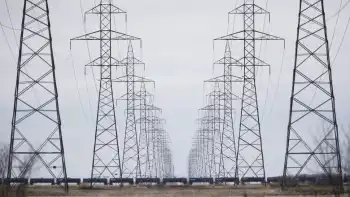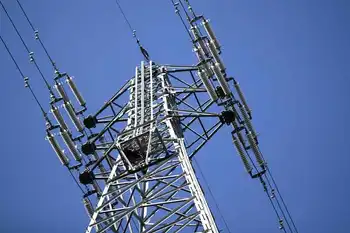Iraqi minister resigns over power shortages
BAGHDAD, IRAQ - Iraq's electricity minister resigned in the face of angry protests over the lack of power despite years of promises that the situation would improve.
Karim Waheed's resignation came hours after demonstrators took to the streets for a third day in a row in oil-rich southern Iraq where an unusually hot and humid summer has spiked tensions over electricity outages.
The issue has taken center stage in Iraq since two protesters were killed when security forces opened fire to disperse a crowd in the southern oil hub of Basra. Riot police in nearby Nasiriyah used water cannons after demonstrators began pelting them with stones.
Waheed, who held his post since Prime Minister Nouri al-Maliki formed his Cabinet in 2006, said in a televised address that he had launched a series of projects to fix the grid, but he was stymied by a lack of funding and fuel needed for power plants.
He also accused politicians of trying to exploit public anger over the issue as they jockey for influence amid stalled efforts to form a new government more than three months after March 7 parliamentary elections.
"So I announce with courage my resignation from my post as electricity minister," he said.
Al-Maliki's office could not be reached for comment.
The electricity crisis has raised concerns that growing unrest over the lack of basic services could jeopardize efforts to stabilize Iraq, even as security improves. It also has put a new dent in al-Maliki's image as a provider of law and order as he battles to keep his job after the inconclusive vote.
The Iraqi public has become increasingly frustrated over the government's inability to provide power, clean water and other utilities even after the spending of billions of dollars in U.S. and Iraqi reconstruction money.
Iraqis frequently receive electricity less than six hours a day, and many families pay more than $50 per month for their own generators to make up for the outages. The problem has come to a head as temperatures have soared above 120 degrees 50 degree Celsius at times this summer.
Many Iraqis have directed their anger at Waheed, and calls for his resignation have punctuated demonstrations over the issue. Others say al-Maliki shares the blame.
"The minister's resignation will not solve the electricity crisis because the whole government, not one minister, are responsible for the suffering of the Iraqi people," said Hassan Sabah, the 24-year-old owner of an Internet cafe in Baghdad.
The electricity crisis "is the result of the corruption of the sectarian parties and their struggle over ministerial posts," he added. "I think that the official who should submit his resignation is Nouri al-Maliki."
Iraqi leaders have been quick to respond to the outrage, with al-Maliki promising officials responsible for the shortages would be punished and his political rival Ayad Allawi calling on government security forces to show restraint.
Adel Abdul-Mahdi, a Shiite vice president who has been mentioned as a possible prime minister candidate, stepped into the fray with a statement Monday, calling the shootings in Basra unjustified and urging calm from all sides.
At least 14 policemen and four protesters also were wounded when the Nasiriyah demonstration turned violent Monday, police said.
Helmeted police carrying shields faced off against hundreds of men wielding wooden bars and throwing stones behind waist-high red and yellow barriers and a row of barbed wire protecting the local government compound.
Some demonstrators carried chairs they said symbolized the political bickering over government posts. They also bore kerosene lamps and models of private generators used to make up for the lack of electricity.
"We will continue these demonstrations till our demands are met," said Basil Sabah, 40, an employee in the government education directorate, who was taking part in the demonstration for the second day. "We call upon all Iraqi provinces to stage demonstrations in this electricity revolution."
Iraqis, meanwhile, buried the dead from the double suicide car bombing targeting a state-run bank in Baghdad, the second attack against a major financial institution in a week.
The 28 people killed included a family of four riding in a minibus that was caught up in the blasts as it drove by the bank. Ali al-Kurwi, a 33-year-old plumber from eastern Baghdad, his wife Shaima al-Rawi and their two young daughters, Tabarak and Zainab, were returning from a family visit when they were killed.
Related News

An NDP government would make hydro public again, end off-peak pricing, Horwath says in Sudbury
TORONTO - Ontario NDP leader Andrea Horwath says her party’s hydro plan will reduce families’ electricity bills and the NDP is the only choice to get Hydro One back in public hands.
Howarth outlined the plan Saturday morning outside the home of a young family who say they struggle with their electricity bills — in particular over the extra laundry they now have after the birth of their twin boys.
An NDP government would end time-of-use pricing, which charges higher rates during peak times and lower rates after hours, “so that people aren’t punished for cooking dinner at dinner time,” Horwath said…




